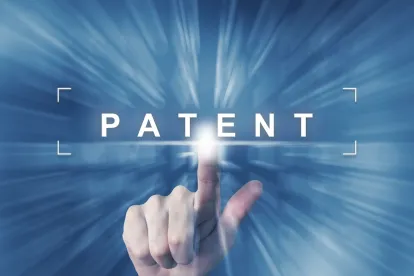In a rare reversal, the Patent Trial and Appeal Board (“PTAB”) reassessed the Fintivfactors in a decision on a petition for rehearing of a previous decision denying institution of an inter partes review (“IPR”). The PTAB had previously declined to institute the IPR filed by Sand Revolution against Continental Intermodal due to the advanced state of a parallel district court litigation. In its recent reversal, the PTAB reveals several strategic options for future litigants to consider.
In its initial decision from this past February, the PTAB exercised its discretion under 35 U.S.C. § 314(a), declining to institute an IPR due to a parallel district court litigation in the Western District of Texas. That litigation involved the same patent at issue as in the IPR petition, between the same parties, with same asserted prior art and arguments, and was scheduled to have a trial before the final written decision in the IPR would come due. While that decision pre-dated the PTAB’s articulation of the Fintiv factors, it is clear the PTAB was weighing the same general facts.
On June 16, 2020, the PTAB decided to institute the IPR petition after the petitioner sought rehearing due to several changing facts related to the parallel litigation. Sand Revolution II, LLC et al v. Continental Intermodal Group - Trucking LLC, IPR2019-01393, Paper No. 24 (PTAB Feb. 5, 2020). The changing facts altered the outcome of two Fintiv factors to weigh in favor of institution. As we have previously written, the PTAB has set forth six factors to balance efficiency and fairness when deciding requests for a discretionary denial due to the advanced state of a parallel proceeding. The six factors applied by the PTAB are:
-
whether the court granted a stay or evidence exists that one may be granted if a proceeding is instituted;
-
proximity of the court’s trial date to the Board’s projected statutory deadline for a final written decision;
-
investment in the parallel proceeding by the court and the parties;
-
overlap between issues raised in the petition and in the parallel proceeding;
-
whether the petitioner and the defendant in the parallel proceeding are the same party; and
-
other circumstances that impact the Board’s exercise of discretion, including the merits.
The PTAB found that the current facts related to the second and fourth factors now favored institution of the IPR. As to the second factor, the trial date in the parallel Western District of Texas litigation had been extended several times by joint motion of the parties, and the most recent scheduling order included qualifier language adding uncertainty to the scheduled trial date. Thus because “the currently scheduled trial date is in relative close proximity to the expected final written decision in this matter” and there is “uncertainty that continues to surround the scheduled trial date,” according to the PTAB, the second factor weighed marginally in favor of institution.
As to the fourth factor, the petitioner stipulated that it “will not pursue the same grounds as in the district court litigation” in the event the IPR is instituted. The PTAB held that the stipulation “mitigates to some degree the concern of duplicative efforts between the district court and the Board, as well as concerns of potentially conflicting decisions.” Thus, the fourth factor weighed marginally in favor of institution.
The Sand Revolution decision offers several practice tips for both patent owners and petitioners. For example, patent owners should be mindful not to delay their trial date so that alleged infringers cannot capitalize in unexpected ways, as Sand Revolution did here. Petitioners, for their part, should consider filing IPR petitions early as opposed to close to the one year deadline to reduce the possibility of the Fintiv factors weighing against institution. Petitioners may also consider keeping the record open by moving for rehearing of a petition denied due to the progress of a parallel district court action: if the trial date is delayed, an alleged infringer may get another bite at the IPR apple. Finally, Petitioners may further consider a broader stipulation to mitigate the PTAB’s concerns regarding duplicative efforts and conflicting decisions.
Although this decision does not change the likelihood that the PTAB will continue to exercise restraint where institution would create judicial inefficiencies with respect to parallel proceedings, the reversal nonetheless marks an important development for parties involved in litigation that may appear before the PTAB. Decisions on rehearing that reverse the original decision themselves are rare, and this reversal provides strong evidence that the PTAB is open to changing its mind if facts on the ground compel the change.







 />i
/>i

